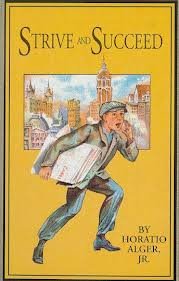The Dark Side of the 50’s, Suffering, and a Writer’s Education: Marshal Zeringue’s The Page 69 Test
Marshal McLuhan, last century’s great communication theorist, declared that if you turn to page 69 in a book and like it, you’ll like the entire book. It’s a fascinating concept, one Marshal Zeringue has used for his blog called The Page 69 Test.
Happily and gratefully, I’m one of the writers Marshal Z invited to contribute to his site. Happily and gratefully, I returned to page 69 of TCOL and learned something new about my own novel. I call this “a writer’s hindsight education.”
How could it be that after years spent writing a book, after the drafts and gazillion discussions with friends and editors, I’m just now finding new revelations in the work? The experience is not dissimilar to picking up an old dream journal, rereading a dream, and understanding them at a deeper level: the meaning of the text keeps unfolding and amplifying over time.
Some of my post-publication education has also come via the astute questions and observations of readers and reviewers. At a book group discussing my novel, I was amazed by a fervent debate among participants concerning why Eunice, the book’s protagonist, decided to leave home. An eavesdropper might have mistaken the conversation (to which I was only a witness) for a heated round of gossip instead of a discussion about literary characters! One of the pleasures of being a reader among readers, of being in a book group is precisely this opportunity to exchange of ideas and opinions, to try-on theories and to engage in an investigation about human nature. That night, after the group, I went home and re-examined what I had actually written.
But getting back to a writer’s hindsight, this makes perfect sense to me since one of the engines that fuels the creative process is the unconscious mind. We may think we know why we are writing something, but the unconscious mind, often in its trickster mode, contributes in subtle ways to the resonance and archetypal dimension of the work.
For instance, I very consciously set the novel in the fifties and did lots of research on that period, especially on popular culture. But it’s only now I see that I was also writing about the dark side of the fifties— its repressive gender and racial attitudes, its propagation of the rags-to-riches Horatio Alger myth, its stifling of women’s creative lives. The Eisenhower years were a strange combination of hail-fellow-well-met optimism and rolling paranoia.
Mr. Tabachnik, a refugee from Eastern Europe, most concretely embodies the horror that was World War II. Only a few years before the novel begins, Americans saw the first pictures of the camps, starved prisoners in their striped pajamas that haunted our collective psyche. We hadn’t yet digested the scale of the holocaust or our role in dropping the atomic bomb or finished grieving our own war dead.
We believed most heartily that science and technology would usher us into a new and prosperous utopia. Our suffering was invisible to us.
(Pico Iyer has written a very moving piece in the Times yesterday called The Value of Suffering. He too addresses the collective/cultural aspect of grief. I take his words, “to survive is to make sense of suffering” as a mantra for the times.)
My character, Mr Tabachnik, is a student of suffering. I mention Mr. T. in my piece for The Page 69 Test. Mr. T is my hero and his declaration, “From the terrible beauty comes” is another piece of wisdom I didn’t know I knew. When those words first fell from Mr. T’s mouth, I was astonished. It would seem I put those words into his mouth, but the truth is that until he said them, I didn’t know I believed them too.




